SUMMARY
This is AI generated summarization, which may have errors. For context, always refer to the full article.
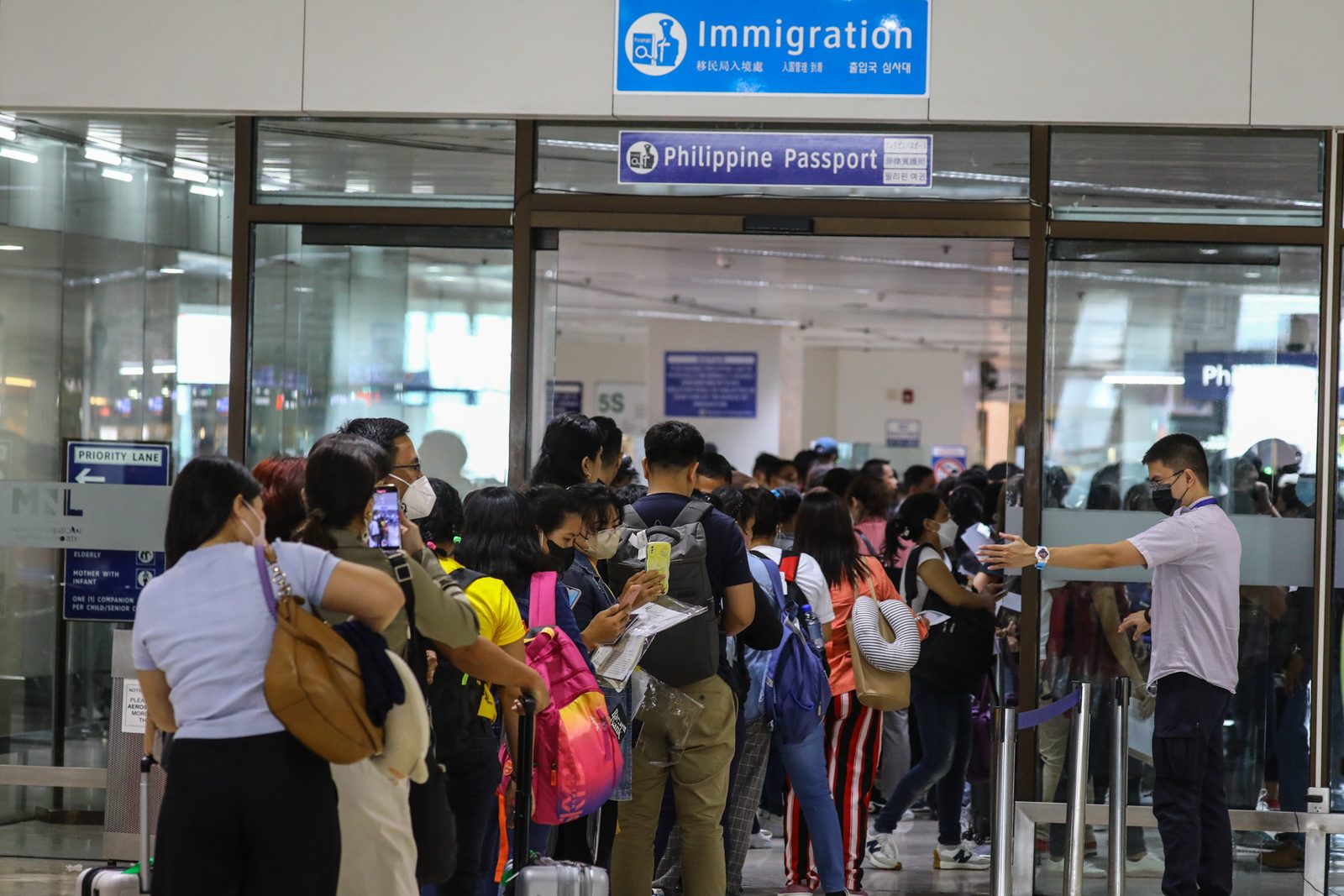
MANILA, Philippines – The Department of Justice (DOJ) on Friday, August 25, apologized over its way of communicating the Inter-Agency Council Against Trafficking’s (IACAT) revised guidelines for requirements that Filipinos may need to prepare when traveling abroad.
“Apologies are in order. Magso-sorry na po kami dahil hindi po tama ‘yung communications po namin dito sa bagong revised guidelines,” said Department of Justice spokesperson Mico Clavano in an interview on DZBB. (We will say sorry because the communications regarding the revised guidelines was not done well.)
The IACAT on August 22 released revised guidelines on requirements which may be asked from Filipino passengers traveling abroad, saying that an update was needed in light of the evolving issue of human trafficking. The guidelines were approved on August 18 and will take effect on September 3.
These guidelines caused alarm to many Filipinos, with some arguing that the Philippine government was infringing on Filipinos’ right to travel.
“Naiintindihan po natin ‘yan. Talagang may ganoong side. And I think it really is a communications failure, na hindi po natin nailabas ang 2015 guidelines na compared side by side doon sa 2023,” said Clavano. (We understand, and there was really that kind of side that came out. And I think it really is a communications failure, that we did not release the 2015 guidelines compared side by side with the 2023 ones.)
Clavano clarified that the 2023 guidelines were the same as the previous guidelines that Philippine authorities released in 2015. In a press conference on Thursday, August 24, the DOJ also said that the additional requirements apply mostly to first-time travelers, and that the DOJ only streamlined the existing guidelines.
In a separate interview on Radyo 5 also on Friday morning, IACAT Undersecretary-in-Charge Nicholas Ty said that if one is a seasoned traveler, or did not display any red flags as assessed by the Bureau of Immigration (BI), then they would not need to produce the additional requirements.
“Kung walang red flag ang isang tao, hindi pa rin niya hahanapin. Itong mga dokumento na ‘yan, ‘yung proof of financial capacity, lalabas lang ‘yan kung may red flag,” said Ty. (If a person does not have a red flag, the [IO] will not look for [the additional requirements]. The documents there, like the proof of financial capacity, should only be produced if there is a red flag.)
Ty reiterated that frequent travelers with no record of misrepresenting their purpose of travel should not have to worry.
“Kasi unang una, nasa record ‘yan ng immigration na nagbabiyahe sila at bumabalik. Hindi sila ‘yung tipong talagang lumalabas na nag-misdeclare sila ng purpose of travel. At kung may travel record ka na, kampante na ang BI sayo, chances are within a 45-second window for primary inspection, makakalabas ka na,” he said.
(Firstly, immigration has records of them leaving and coming back. They are not the type to leave and misdeclare their purpose of travel. And if you already have a travel record, the BI will not be worried about you, and chances are, within a 45-second window for primary inspection, you will be able to leave.)
Clavano and Ty said that the revised guidelines were for the “vulnerable” travelers. These include first-time travelers, first-time overseas Filipino workers (OFWs), and digital nomads, according to Clavano. Seasoned travelers would only need to bring the basic documents: passport, visa, boarding pass, and confirmed return or roundtrip ticket, if necessary.
“Hindi kami naghihigpit. [Ang] ginawa lang namin, fin-ormalize namin at rin-ationalize namin ang existing rules natin. Kung nakakalabas ka na dati, o kung tapat ka naman sa doon sa iyong sinasabi na purpose of travel mo, kumpleto ‘yung mga documents mo, wala ka dapat katakutan. Ito, ginagawa lang namin ‘to para protektahan ang ating mga vulnerable na kababayan laban sa human trafficking at sa ibang mga masasamang bagay,” said Ty.
(We are not being more restrictive. All we did was formalize and rationalize our existing rules. If you have been able to travel before, or if you have been honest about your purpose of travel, and you have complete documents, you should not be worried. We are only doing this to protect our vulnerable countrymen against human trafficking and other bad things.)
Bureau of Immigration (BI) Commissioner Norman Tansingco likewise said tourists should not worry about the revised guidelines, clarifying that there was “no change in procedures.”
“This is the same procedure we have been previously implementing, but it has been streamlined by the IACAT so it is clearer for Filipinos,” Tansingco said in a statement on Friday. “There is no new policy for departing tourists being implemented by the BI.”
The BI also gave assurances that the new guidelines wouldn’t be the cause for “unnecessary interviews,” especially for departing passengers with no red flags.
In 2022, the Philippines reported 1,277 victims of sex and labor trafficking. For eight consecutive years, the Philippines was given a Tier 1 ranking by the United States Trafficking in Persons Report. This means that the government has satisfied only the minimum standards on laws and other protective mechanisms to combat human trafficking. – Rappler.com
Add a comment
How does this make you feel?
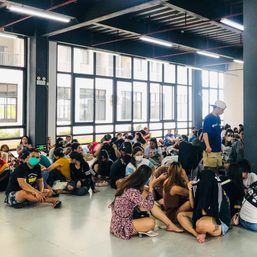
![[Free to Disagree] Arrest Quiboloy!](https://www.rappler.com/tachyon/2024/03/Free-to-disagree-arrest-quiboloy-March-11-2024-1.jpg?resize=257%2C257&crop_strategy=attention)
![[EDITORIAL] Kalaban mo ang mga senador na protektor ni Quiboloy](https://www.rappler.com/tachyon/2024/03/animated-quiboloy-kojc-senate-carousel.jpg?resize=257%2C257&crop=365px%2C0px%2C720px%2C720px)
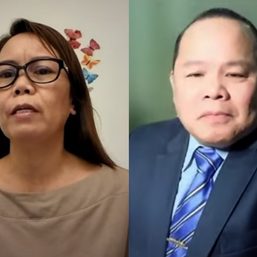
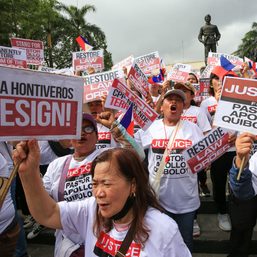


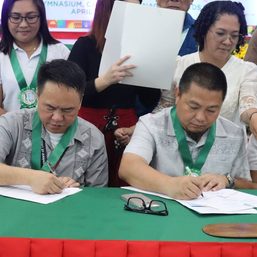


There are no comments yet. Add your comment to start the conversation.